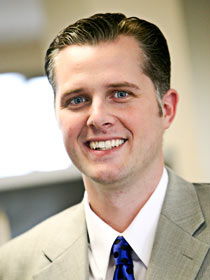The thought that there could be a shortage in pain killing drugs for the people who need them (doctors) is stunning and frankly hard to imagine. But surgeons are seeing shortages in everything from morphine to propofol, and this means they have to alter their treatment plans for patients by using alternative drugs. The American Society of Health-System Pharmacists lists 150 "medically necessary" drugs in the shortage crisis.
"It’s been going on for a number of years, but right now it seems to be a little worse than usual," said Dr. James Novotny, a medical oncologist at Franciscan Skemp.
The most important question is why is this happening? Pharmaceutical experts believe it comes down to business decisions made by drug companies. Some drug companies are choosing to increase production of the more profitable name brand drugs while cutting back on the production of generics.
The FDA offers several potential culprits: manufacturing delays, commodity shortages and increased demand.
Senator Amy Klobuchar of Minnesota took up the cause last December, vowing to introduce legislation that would provide the FDA with tools to address drug shortages. And she’s following through, with an announcement from her website that says she and Bob Casey (D-PA) have introduced a bill that gives the FDA the ability to require early notification from pharmaceutical companies when an issue may arise that could cause a shortage.
The duo’s proposed legislation is supported by the Minnesota Hospital Association, the American Hospital Association, Fairview Hospital, the American Society of Clinical Oncologists, and the Institute for Safe Medication Practices.
Archive for February, 2011
Drug Shortage Crisis Addressed in Congressional Legislation
Herbal Medicines Potentially Dangerous Mix with Anesthesia
While herbal medicines may have once been seen as something relegated to counterculture types years ago, it’s very much a part of the mainstream in the U.S. today. Every year, Americans are spending over $27 billion on herbal supplements to help them with everything from memory to energy boosting.
While herbal medicines can often be used effectively, the term "natural" often gets mixed up with automatically being safe. This can be a potentially fatal assumption with people who have a surgical procedure where herbal products can interact adversely with anesthesia medicine. What anesthesiologists are finding is that many time patients aren’t revealing the use of herbal medications before they go into surgery.
According to a report at the American Society of Anesthesiologists, about half of all patients do not tell their doctors about their herbal supplement use before going under anesthesia.
"There is a clear gap in communication between doctors and patients on the topic of alternative medicines," says Dr. Rafael Ortega.
It’s unclear why the information is not being divulged, whether it’s embarrassment or not understanding how potent the medicine is that they are taking.
Since herbal drugs are not subject to the same standards under the Food and Drug Administration, it is not always clear how the compounds may interact with medicines used by doctors. In fact, manufacturers do not have to prove efficacy or track the side effects of their herbal products.
The chairman of the Department of Anesthesiology at Boston Medical Center Dr. Keith Lewis, a pharmacist and physician, recommends that patients stop taking herbal medicines at least two weeks before their surgical appointment. He also prefers patients bring in their medications for their doctors to examine.
Half of Americans Have Preexisting Medical Conditions
There are many debates over our healthcare system and how to improve it. One them involves people with pre-existing medical conditions and whether or not it is okay for insurance companies to discriminate against people who have them. Now, news of how many people who have preexisting conditions sheds some light on how important this aspect of the healthcare debate really is.
Secretary of Health and Human Services Kathleen Sebelius just released a study that states that up to half of all Americans under the age of 65 have medical problems that could fall under the definition of preexisting conditions. In the report, depending on the definition of a preexisting condition, between 17 and 46 percent of Americans may have problems getting health insurance. That means as many as 129 million Americans are at risk of not qualifying for health insurance, or at least only being eligible for state high-risk pools which are special coverage for people denied insurance due to their medical history.
The researchers at the Health and Human Services Department used findings from an expansive federal survey of medical expenditures in 2008, the most recent available, to come to the conclusion of how many people faced problems of preexisting health issues.
The ailments that may put people at risk of not qualifying for health insurance include cancer and chronic illnesses, such as heart disease, asthma and high blood pressure.
There is push back to these findings, both from Republicans who say that it is partisan PR on behalf of the Democrats and from the Insurance industry itself.
Robert Zirkelbach, a spokesman for the health insurance lobbying group America’s Health Insurance Plans, says that even though his group supports the reform of the individual insurance market, "this report exaggerates the number of people who are impacted."
If the provision for protecting people with preexisting conditions remains intact, the 2010 Patient Protection and Affordable Care Act will forbid insurance companies to charge sick patients more or reject sick healthcare applicants.
 Hi There! My name is Chris Phillips and I am the President of MBA Medical Business Associates, a medical practice management company specializing in
Hi There! My name is Chris Phillips and I am the President of MBA Medical Business Associates, a medical practice management company specializing in